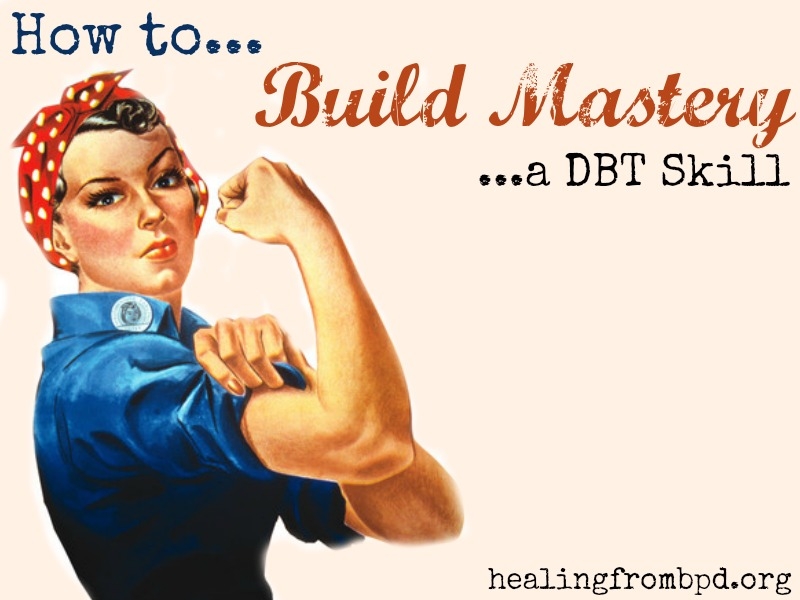By: Nicole Wozniak, Psy.D.
Building Mastery is a skill found in Dialectical Behavior Therapy (DBT) created by Dr. Marsha Linehan. Although initially established to help individuals with Borderline Personality Disorder (BPD), DBT is now widely accepted as a first-line treatment for many mental health conditions, and its modules and skills can be adapted to fit almost any need. Building Mastery is one of my personal favorite DBT skills because it fosters resilience and self-esteem through the concept that small changes can promote big growth. Anyone can try it!
What is it?
The core of Building Mastery is about building a life you want to live by taking small steps to enact change. Although the idea of “mastery” can sound daunting, in all reality, this skill just refers to breaking down big scary tasks and goals into smaller, manageable steps to help individuals feel successful in their daily lives. The idea behind it is rather quite simple. When you consistently do things that challenge you, no matter how small the challenge might seem to you or to others, things that just push the boundaries of your abilities, you will gradually build confidence in yourself to handle difficult situations.
Why is it needed?
BPD is a disorder marked by intense emotional instability, which is why DBT was created, as it is a set of tools designed to help individuals manage big, unstable emotions. However, what was noticed throughout the years, is that many individuals, not just those diagnosed with BPD, struggle with emotional instability and intense emotions. Oftentimes, when struggling with depression, anxiety, or other emotions, people avoid tasks that feel overwhelming. This triggers the “Cycle of Avoidance,” i.e., the more you avoid, the worse you feel and the more the urge to avoid grows. Building Mastery helps break the cycle of avoidance, one small success at a time. It is never about perfection but rather making small progress over time.

How do I do it?
• Start by choosing an activity that feels hard for you but also feels manageable. For example, this could be organizing your sock drawer or cleaning one corner of your bedroom. It could also be taking a small step toward a larger goal, such as updating your resume if you are eventually hoping to get a new job. The main idea here is to pick something that requires effort but is not so hard that you end up feeling stuck or defeated.
• Be consistent: Even a few minutes a day of working toward a small goal is helpful. We want the snowball effect to take place. That is, you start small and build momentum which reinforces the idea of mastery over time.
• Track progress: Make sure you reflect on your accomplishments. It can be helpful to keep a journal of your progress. Checklists also show that you have accomplished different tasks. In fact, if you are facing a daunting goal, breaking it up into the smallest parts and putting those parts into a checklist allows you to complete one small part at a time. Each time you cross something off the list; that’s proof that you’ve got this!
• Celebrate little victories—even if they seem like things you should already be able to do. (Side note…I hate the word “should.”—It’s only good for blaming!). There is nothing wrong with providing yourself with rewards small wins!
• As you grow, stretch yourself and challenge yourself a little more each time. As your confidence builds, you will find your confidence in the ability to complete harder tasks also grows. Make sure you pay attention to how your resilience develops as you move through this process.
What counts as a Building Mastery task?
Literally…anything: practicing a new skill, studying for a certification, applying to school or a job, completing a household task, organizing something, learning something new, etc. This list could go on forever!
Final Thoughts
Remember, Building Mastery isn’t about becoming the best or even being “good” at something. It’s about building resilience and a life worth living by improving your relationship with yourself and your self-esteem.
For help with Building Mastery, or other DBT skills, please contact us at 734-416-9098 or office@mccaskillfamilyservices.com to get connected with one of our specially trained psychologists.


